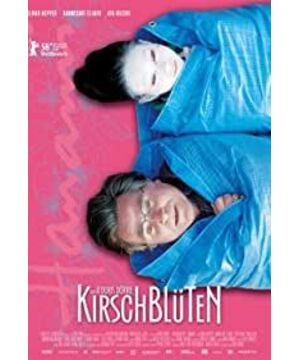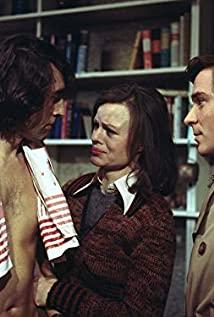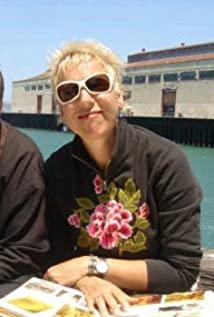I have always liked dancing. Beautiful dances are mixed with strong emotions and appeals. It is a living work of art, beautiful, intoxicating or heartache.
So after watching this movie, I was deeply impressed by the rich dance in it. The dance was extremely dark. Whether it was makeup with a white painted face and dark circles, or a gesture full of evil, it was very gothic. However, it is extremely affectionate, and it hurts people to look at it. Facing this mysterious dance, I was really stunned. At the end, she said to me that she finally knew the secret of this dance. I said why, she didn't talk, and I said if the dancer was always holding that person, she said yes. Regardless of whether this understanding is biased or not, I think the charm of dance is also evident.
Seriously, her understanding made me shiver. What a sadness to dance with your beloved dead. Under Mount Fuji, an old man wandering in front of death, dancing with his invisible dead wife, once again pushed the splendid bloom of death and beauty in Japanese national culture to the audience.
The indifference of family affection can be seen everywhere, the impatience of parents, the incomprehension of wives, these common troubles are always with people. Noisy during his lifetime, and dejected after death, this is an eternal paradox of human nature. However, when the son who had been away from his parents in Tokyo for many years faced his father's cabbage rolls and cried, I was still moved. No matter what, this feeling is heavy, no matter how indifferent it is wrapped. It's just that the relationship between family members in the film does not stop at a general discussion, but the extreme opposition between life and death is shown through family affection. Murakami said, "Death is not the opposite of life, but as a part of life." Death prompts people to think. Without the consciousness of death, one cannot live a wonderful life. This is also a paradox. The wife’s death is a mirror, showing the hero’s remembrance of his wife’s life and the torture of himself. At this time, his son’s indifference adds to his own sins. He just said something. "Can I stay for a few more days, just a few days" without arguing. He walked to the place his wife had longed for before he was alive, and embarked on a journey of redemption and death. At this time, he truly understood his wife's life.
One of the great things about the movie is that it didn't deliberately arrange anything for the perfect ending. At the end, a few children still can’t understand their father and are still arguing. They don’t understand the earthquake-like change in the depths of their father’s soul. Maybe they will only understand all this when they face death on their own. . Maybe never understand. Just like the protagonist's "one apple a day keeps the disease away from me" for decades, the power of life is so powerful that it is hard to resist.
Fortunately, we still have dancing. Have you ever observed a person's body, every inch of skin, every inclination and curve on a certain day, have you gently embraced that body with your hands, have you ever danced for that person? If not, then you can try it. You can dance on that person's shadow, dance on that person's body, that person may be dead, but it's in your body at this time. You may not think that dancing for the dead can be so beautiful.
dance! dance! dance!
View more about Kirschblüten - Hanami reviews










